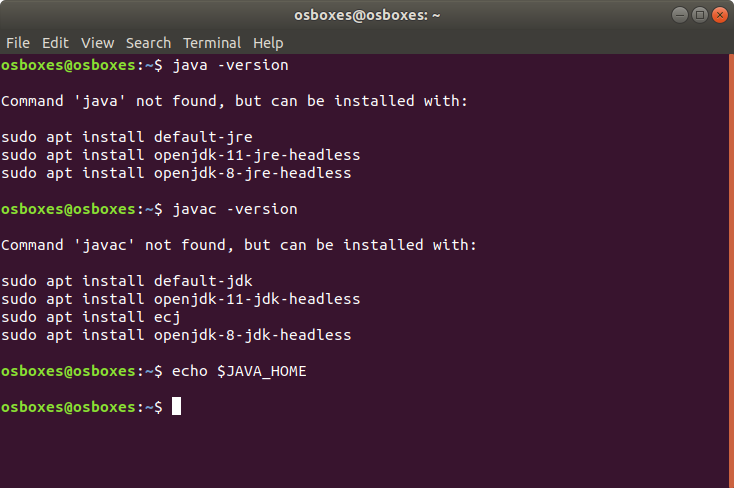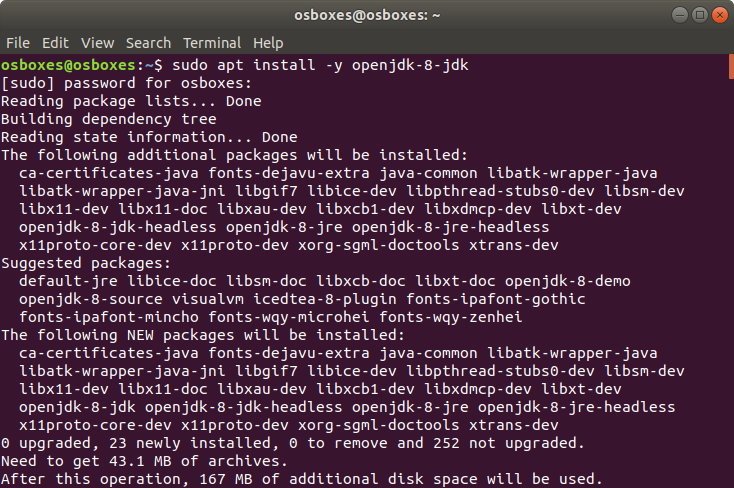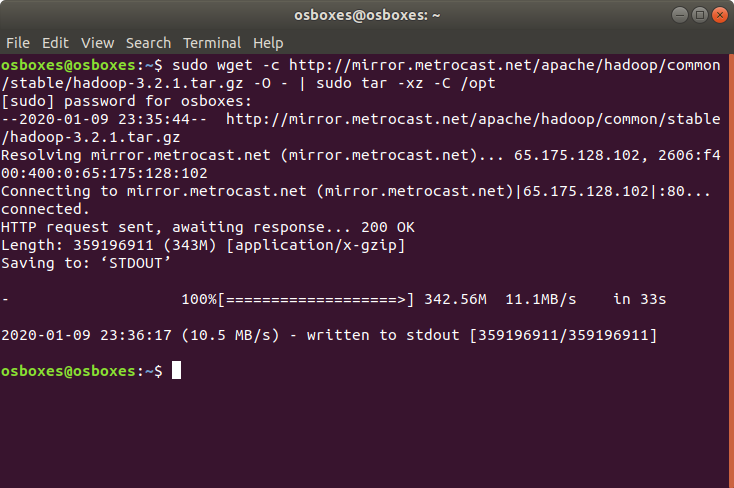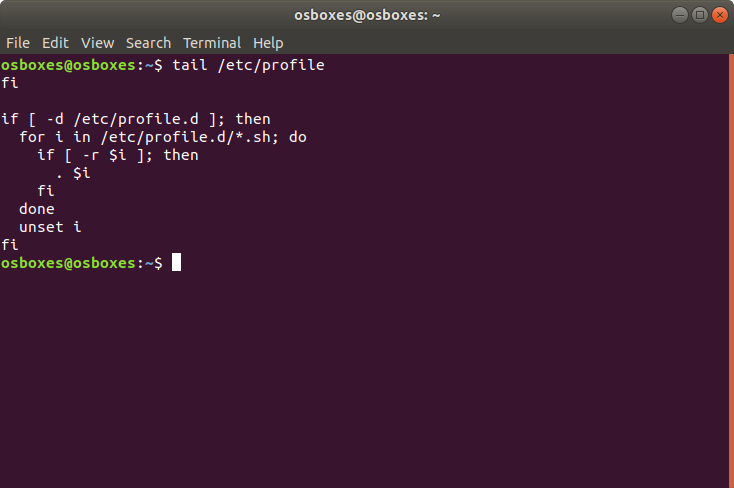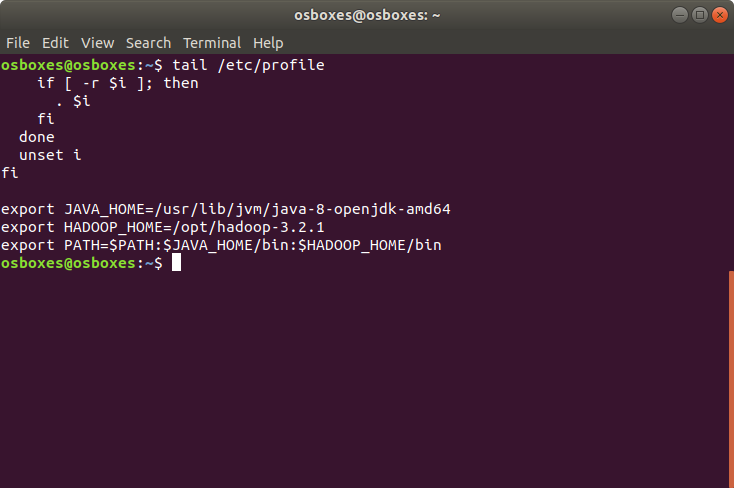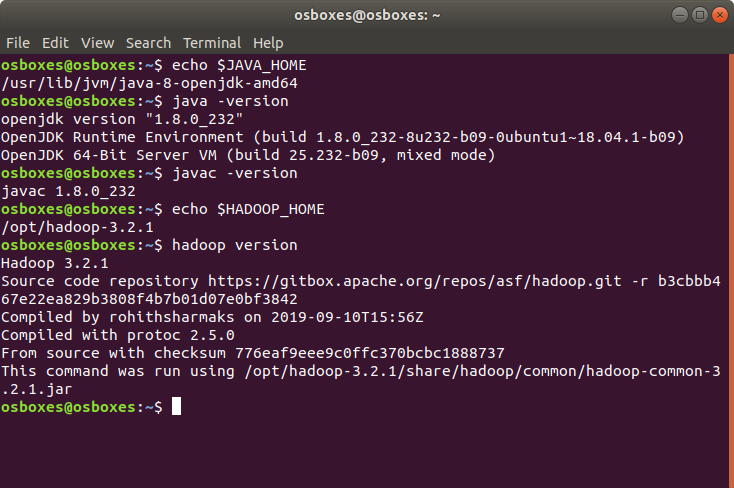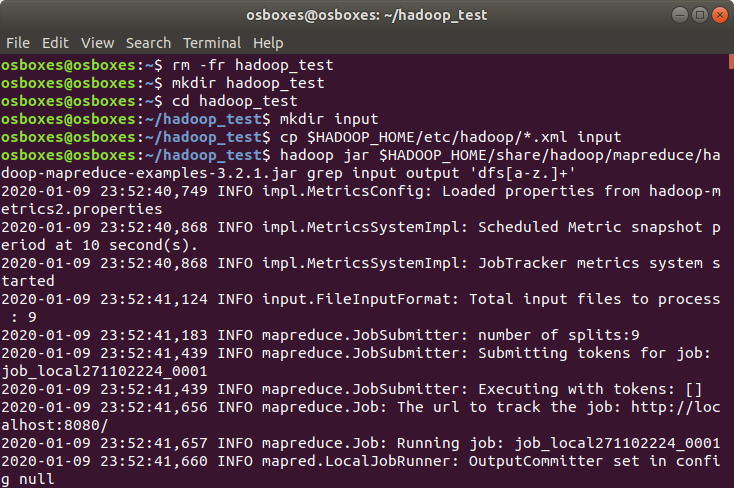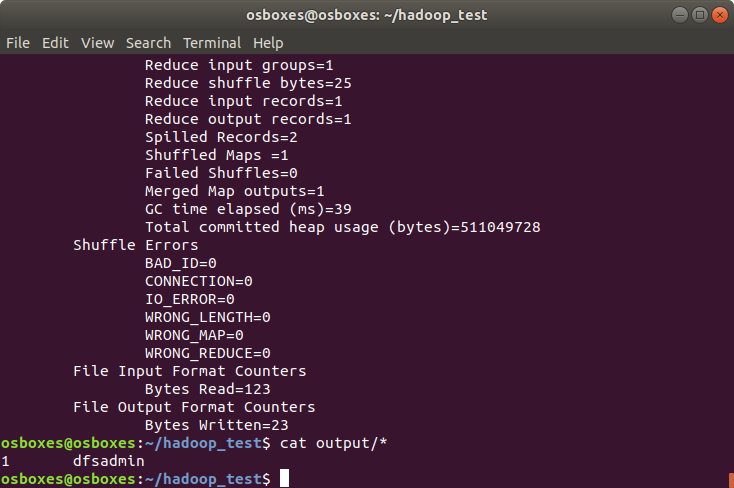How to set up single node Hadoop cluster
This tutorial contains detailed steps to set up a single node Hadoop cluster on your own machine.
Requirements
- Java 8
- Apache Hadoop
- Linux or Mac OS (highly recommended)
How to
Install Java 8
The latest Apache Hadoop version is 3.3.1. All Hadoop 3 builds require Java 8.
First you need to check if Java 8 is installed and if JAVA_HOME is set, by the following commands:
echo $JAVA_HOME
java -version
javac -versionIf echo $JAVA_HOME shows no result, you need to set JAVA_HOME in the environment. If java -version or javac -version shows command not found or showing a version different from 1.8.0_xxx, you need to install Java 8.
To install the latest JDK 8 and JRE 8, run the following commands in Terminal if you are using Debian or Ubuntu:
sudo apt update
sudo apt install -y openjdk-8-jdkIf you are using CentOS, Fedora or RedHat, use the following commands instead:
sudo yum update
sudo yum -y install java-1.8.0-openjdk java-1.8.0-openjdk-develNote, if you are using CentOS 8, Fedora 22 or RedHat 8, use the following dnf commands instead of yum:
sudo dnf upgrade
sudo dnf -y install java-1.8.0-openjdk java-1.8.0-openjdk-develIf you are using MacOS, you can download and install the latest JDK 8 (contains JRE 8) from https://www.oracle.com/java/technologies/javase/javase-jdk8-downloads.html.
Mac M1 may use third party JDK 8 like azul or Miniforge.
Install Hadoop 3
Use the following command to install Apache Hadoop 3 globally for all users. You can use a different location if you prefer.
sudo wget -c https://dlcdn.apache.org/hadoop/common/hadoop-3.3.1/hadoop-3.3.1.tar.gz -O - | sudo tar -xz -C /optFor aarch64 systems, like Linux ARM or Mac M1, use the following command instead:
sudo wget -c https://dlcdn.apache.org/hadoop/common/hadoop-3.3.1/hadoop-3.3.1-aarch64.tar.gz -O - | sudo tar -xz -C /optThis will install the latest Apache Hadoop (currently 3.3.1) to /opt/. You may find your fastest link to download from https://hadoop.apache.org/releases.html.
Set Environment Variables
After JDK 8, JRE 8 and Hadoop 3 are installed, run the following commands to set JAVA_HOME and HADOOP_HOME environment variables:
echo | sudo tee -a /etc/profile > /dev/null
echo "export JAVA_HOME=/usr/lib/jvm/java-8-openjdk-amd64" | sudo tee -a /etc/profile > /dev/null
echo "export HADOOP_HOME=/opt/hadoop-3.3.1" | sudo tee -a /etc/profile > /dev/null
echo "export PATH=\$PATH:\$JAVA_HOME/bin:\$HADOOP_HOME/bin" | sudo tee -a /etc/profile > /dev/nullBefore editing, the end of /etc/profile looks like
After editing, the end looks like
These commands make the following changes to /etc/profile:
- Set
JAVA_HOMEto /usr/lib/jvm/java-8-openjdk-amd64. You may need to change this path if you are using a different system. - Set
HADOOP_HOMEto /opt/hadoop-3.3.1. You may need to change this path if you are using a different Hadoop version, or installed it at a different location. - Add
$JAVA_HOME/binand$HADOOP_HOME/bintoPATHfor the system to locate the executables of JAVA and Hadoop.
If you just want to make these changes for the current user only, you can add the same contents to ~/.profile or user related places (e.g, ~/.bashrc, ~/.bash_profile, ~/.zshrc or ~/.zsh_profile).
To make these changes take effect, either run source /etc/profile, or restart the system.
Verify Java 8 and Hadoop 3
Run the following commands:
echo $JAVA_HOME
java -version
javac -version
echo $HADOOP_HOME
hadoop versionThe results should be similar to
Run Example Program
Run the following commands:
# Remove the old folder if exists
rm -fr hadoop_test
# Create a workspace and cd to it
mkdir hadoop_test
cd hadoop_test
# Create a folder for MapReduce input files
mkdir input
# Copy some text files to the input folder
cp $HADOOP_HOME/etc/hadoop/*.xml input
# Run MapReduce Grep example
# Grep example extracts matching strings from text files and counts how many time they occured
hadoop jar $HADOOP_HOME/share/hadoop/mapreduce/hadoop-mapreduce-examples-3.3.1.jar grep input output 'dfs[a-z.]+'
# Print the output contents
cat output/*Hadoop on Windows
Running Hadoop on Windows can be tricky and not recommended. I would recommend install Hadoop through virtual machines, for example, Oracle Virtual Box is a free software that supports almost all major host OS.
OSBoxes is a very good website that has many VM images to download, so you don't have to spend time installing a guest OS on your VM.
There are some good tutorials about how to install and configure Hadoop on Windows, for example, Installing and Running Hadoop and Spark on Windows.
